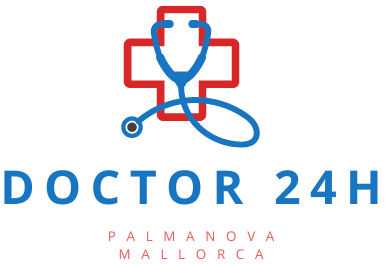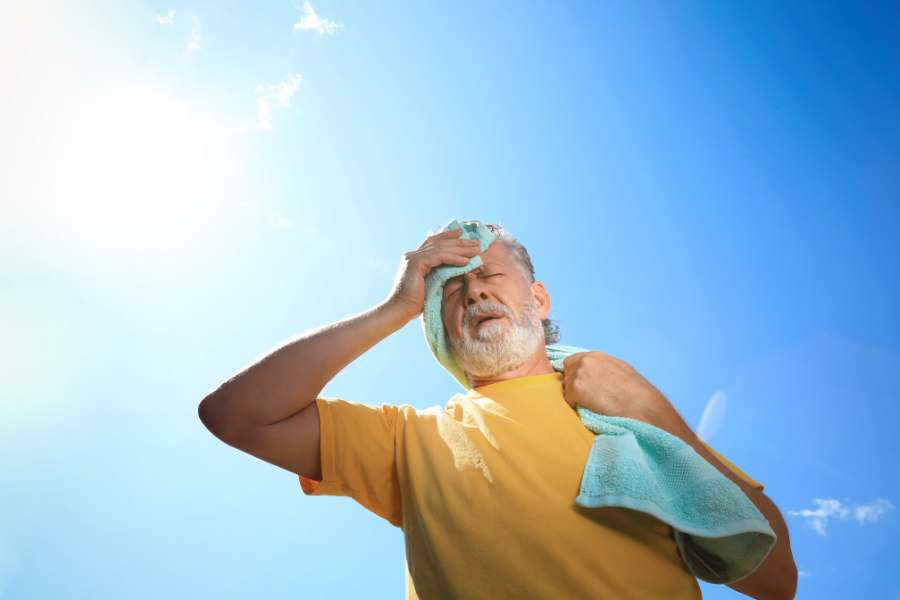As temperatures climb, the risk of dehydration and heat stroke increases significantly. It’s imperative to recognize the indicators and understand the treatment options to ensure safety during hot weather.
Dehydration and heat stroke are serious conditions that can have severe health consequences, highlighting the importance of staying informed and prepared during heatwaves and outdoor activities.
Is it heat exhaustion or heat stroke? Here are the symptoms to watch for
Understanding the difference between heat exhaustion and heat stroke is critical for timely treatment. Heat exhaustion often precedes heat stroke and presents through symptoms such as excessive sweating, dizziness, and fatigue. Conversely, heat stroke is a severe medical emergency marked by a lack of sweating, high body temperature, and possible loss of consciousness.
Recognizing the early signs of heat exhaustion can prevent the progression to heat stroke. Immediate steps should be taken to cool down and hydrate if symptoms are present. With heat stroke, however, emergency medical attention is vital as it can rapidly lead to organ damage or death.
People experiencing heat stroke may have hot, dry skin and may exhibit confusion or irritability. It’s a condition that requires prompt intervention; thus, if suspected, call emergency services immediately.
What are the symptoms of dehydration and heat stroke?
Symptoms of dehydration include headaches, dry mouth, and extreme thirst. These symptoms arise when fluid intake is insufficient, especially during periods of intense heat. The body loses fluids through sweat, and without adequate replacement, dehydration occurs.
Heat stroke symptoms are more severe and include a body temperature above 103°F (39°C), red hot skin, rapid pulse, and possible unconsciousness. When experiencing heat stroke, the body’s temperature regulation fails, leading to a critical situation.
Both dehydration and heat stroke share common symptoms like headaches and dizziness, but the presence of a high fever and changes in mental state are distinct markers of heat stroke.
How long does heat exhaustion last?
Heat exhaustion duration can vary depending on the severity and the individual’s response to intervention. If treated promptly by moving to a cooler environment and rehydrating, symptoms can subside within 30 minutes to an hour.
However, without proper intervention, heat exhaustion can escalate into heat stroke. Therefore, it is essential to monitor the person closely for worsening symptoms and seek medical help if there is no improvement.
What is the treatment for heat stroke?
Immediate cooling is the primary treatment for heat stroke. This involves moving the affected individual to a shaded or air-conditioned area, removing excess clothing, and applying cool water or compresses. Immersion in a cold bath is also effective but should be done under medical supervision.
It’s crucial to avoid consuming fluids immediately if heat stroke is suspected, as this can lead to complications. Instead, focus on lowering the body temperature and waiting for professional medical assistance.
How can you identify mild heat stroke symptoms?
Mild heat stroke, also known as heat exhaustion, can be identified by a spectrum of symptoms, including muscle cramps, fatigue, and a mild increase in body temperature. It is crucial to recognize these early signs to prevent escalation.
Additional signs include excessive sweating, faintness, and a weak but rapid pulse. Monitoring for these symptoms is especially important for high-risk individuals such as the elderly, young children, and those with pre-existing health conditions.
What should you do if someone has heat stroke?
- Call emergency services – Heat stroke is a medical emergency.
- Move the person to a cooler area – Find shade or an air-conditioned room.
- Begin cooling efforts – Apply cool, wet cloths or ice packs to the skin.
- Offer sips of water – Only if the person is conscious and alert.
- Monitor body temperature – Continue cooling efforts until the body temperature drops to a safer level.
What are the differences between heat exhaustion and heat stroke?
Heat exhaustion is a precursor to heat stroke and is characterized by heavy sweating, weakness, and cold, pale skin. On the other hand, heat stroke is identified by a lack of sweating, high body temperature, and neurological symptoms such as confusion or seizures.
While heat exhaustion can often be treated with rest and hydration, heat stroke requires immediate medical intervention due to its potential to cause rapid and severe organ damage.
Dehydration and heat stroke: Questions related to signs, symptoms, and treatment
Can dehydration cause heat stroke?
Yes, dehydration can lead to heat stroke as it hampers the body’s ability to sweat and cool down. Proper hydration is essential for temperature regulation and preventing heat-related illnesses.
When the body lacks fluids, the risk of heat illnesses increases significantly. Therefore, maintaining hydration is key, especially during hot weather or when engaging in physical activities.
What are the warning signs of dehydration and heat exhaustion?
Warning signs of dehydration include dry mouth, little to no urine output, and extreme thirst. For heat exhaustion, look out for excessive sweating, tiredness, and muscle cramps. If any of these are observed, it’s important to take steps to cool down and rehydrate.
What does a heat stroke feel like?
Heat stroke can feel like an overwhelming sense of warmth and dizziness, with the possibility of throbbing headaches and nausea. It’s often accompanied by confusion and the absence of sweating despite the heat.
Why shouldn’t you drink water with heat stroke?
During a heat stroke, the body’s systems are overwhelmed, and drinking water too quickly can lead to issues such as vomiting or seizures. Cooling the body should be the first priority, and rehydration should be done carefully and gradually once the person is cooled.
If you or someone you know is experiencing signs of dehydration or heat stroke, it is crucial to seek medical help. For immediate assistance, contact the clinic “Doctor 24 Hours Palamanova Mallorca” for expert care and advice.

